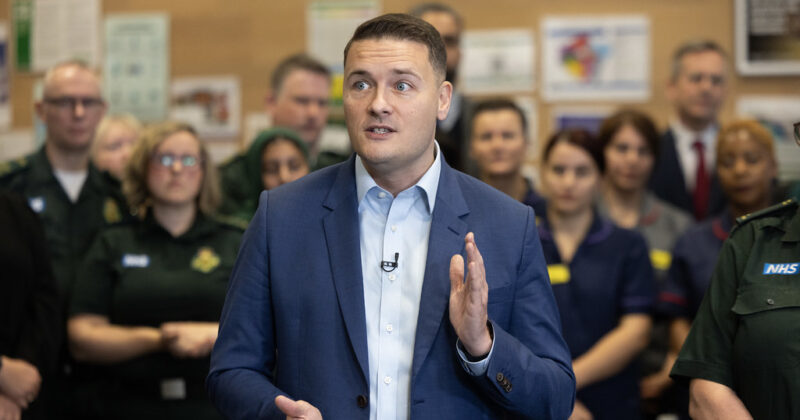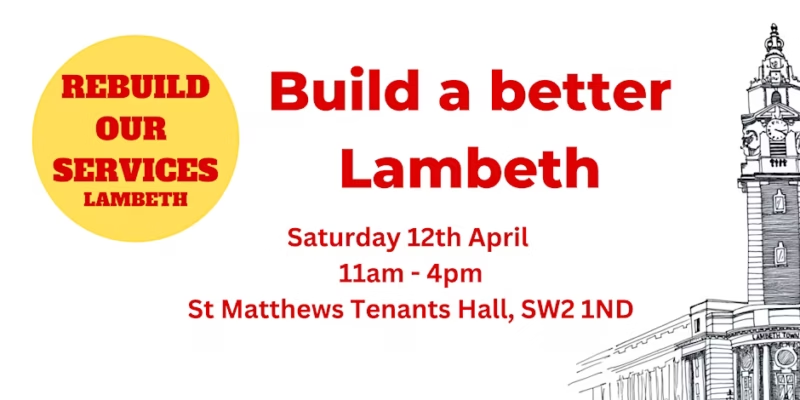As government minister attacks pension reforms, union leader fragments resistance
 Health Secretary Andrew Lansley has labelled the public sector pension reforms “inappropriate” and “unrealistic” in a letter to Treasury minister Danny Alexander, leaked to the Daily Telegraph on Monday. But at a time when the coalition government’s proposals are under attack, the TUC, led by Unison’s Dave Prentis, has further delayed the prospect of united strike action till November and is preparing to settle with the government on a scheme by scheme basis. Jeremy Dewar argues that this could let the Con-Dems divide and rule.
Health Secretary Andrew Lansley has labelled the public sector pension reforms “inappropriate” and “unrealistic” in a letter to Treasury minister Danny Alexander, leaked to the Daily Telegraph on Monday. But at a time when the coalition government’s proposals are under attack, the TUC, led by Unison’s Dave Prentis, has further delayed the prospect of united strike action till November and is preparing to settle with the government on a scheme by scheme basis. Jeremy Dewar argues that this could let the Con-Dems divide and rule.
Lansley points out that the government’s propaganda on this issue is packed with lies and half-truths. He writes:
“In the NHS currently, the average full time career for those taking a pension is only 18 years and it seems unrealistic to suggest… that a predominantly female workforce would need to work full time 48 year careers in future to receive a full pension.”
In other words, all the guff about gold-plated pensions is based on totally “unrealistic” assumptions. In fact, the government has just railroaded through changes to the civil service compensation scheme to make it easier and cheaper to sack public sector workers. The accelerating drive to privatise swaths of the education and healthcare systems will also make long careers in the public services unthinkable.
Lansley went further, acknowledging that increased contributions and the “substantial reduction in the value of the public sector reward package” ran “the risk that lower paid staff will simply opt out” as well as “higher paid groups” causing the schemes to collapse as well as forcing large numbers to fall back onto social security in their retirement. Tellingly the embattled minister revealed the government’s fear of strike action:
“We face a real risk, if we push too hard, of industrial action involving staff groups delivering key public services.”
TUC on its knees – again
Of course Lansley is motivated by the slapping down he received at the hands of the Lib Dems over his NHS reforms, but his carefully leaked letter is the first sign of real divisions in the government’s ranks. Furthermore it has clearly been wrought by the united strike action of civil servants, teachers and others on 30 June. So many workers will be aghast to hear the TUC has agreed talks which aim to achieve deals on a scheme by scheme basis. Unison reports the decision taken at a TUC meeting of public sector unions on 18 July:
“Further talks will take place centrally, and individual unions will be actively considering participating in scheme level talks… to reach a judgement on whether agreement is possible or whether they will enter into dispute and plan industrial action.” (Protect Our Pensions campaign bulletin no. 5, 26 July)
At the same time, general secretary Dave Prentis explained that the timetable “has been extended to October” delaying the prospect of a public sector strike to November at the earliest.
Millions of workers – in the private sector as well as public, as could be seen by coordinated strikes on 30 June by workers in Fujitsu and elsewhere – saw last month’s strike as the beginning of a broadening campaign to unite all our struggles against the government’s austerity programme. Many thought the next logical step would be a public sector strike drawing in NHS and local government workers, with some left wing union leaders touting 4 October as a possible date coinciding with Tory party conference. The most far-sighted, including this website, realised that an indefinite general strike, which could bring down the government, would be posed by such a protest strike.
But it is now clear the TUC is running scared of any such prospect. Scheme-based talks (involving “professional organisations” Prentis informs us) will all be at different stages in the Autumn and our bureaucratic leaders will undoubtedly use this as an excuse to block united action. In an indication of how this might pan out, Unison officials are emphasising that local government and the NHS are special cases, arguing that merging the 101 local LGPS schemes into 14 regional ones would save £1.4 billion (and how many jobs?), while the NHS scheme is running a £2 billion surplus. He is looking to take millions of low paid workers out of the fight.
In fact, Prentis explicitly told the June meeting of Unison’s NEC that he only envisaged coordination across each individual sector: health, local government, etc. Furthermore, it is clear that he is preparing to simply focus on the question of increased contributions, leaving the equally if not more devastating attack on final salary schemes and the change to CPI from RPI inflation link.
So Prentis’ claim that the government has made “significant concessions” by extending talks from July to October and tapering in the increases from April 2012 to 2015, as announced by Danny Alexander today, are not concessions at all. They are merely designed to reach the same conclusion more safely by fragmenting the resistance to the great pensions robbery. If we only learn one thing from the 1980s, it is that United we stand, divided we fall.
With the union leaders where possible, without them where necessary
There are two reasons, however, why we should remain optimistic: one, that there is fighting talk from some of the other union leaders; two, that there is opposition from within Unison.
The PCS general secretary Mark Serwotka has warned “the government has stubbornly refused to compromise on any of the key issues” and called for “maximum unity in the face of a government that has lost the nation’s trust”. He rightly refused to accept there was any need for cuts.
Meanwhile Mary Bousted, Christine Blower and Sally Hunt, leaders of the ATL, NUT and UCU respectively, issued a joint statement saying, “if the government will not budge from its current position those trade unions who have already taken strike action (ATL, NUT and UCU) will, with regret, need to consider taking further industrial action in November” while noting that the headteachers’ NAHT and Welsh teachers’ UCAC unions are also preparing to ballot.
But it is the big unions, Unite, Unison and GMB, that we need to bring into action.
Unite’s NEC continues to talk tough, its June NEC agreeing to kickstart a strike fund with £2.5 million, agreeing to oppose all cuts and to seek maximum coordination of campaigns and strikes. But the Grassroots Left and other socialists need to hold them to their word, calling on them to bring all claims and disputes forward, private as well as public sector, and to bring out its members in local government and the NHS.
But Unison remains the biggest obstacle. Unison United Left has issued an open letter calling on the leadership to abandon scheme-by-scheme talks, move to ballot for a strike in early Autumn and to name the day for a strike. Camden and Tower Hamlets branches have gone further by calling for “a branch-based conference, official or unofficial, to debate what is increasingly looking like a far, far worse pensions sell-out than witnessed in 2005-07”.
Workers Power supports both these initiatives. Indeed if the Unison leadership continues to drag its feet we should be prepared to take action without the official leaders. The conference called by the Tower Hamlets and Camden branches, as well as organising a campaign across the unions to force the leaders to act, should try and organise strikes, unofficially if necessary, from below if the union leadership continues to obstruct action. By establishing a network across the union that’s strong enough to deliver united action, we can lay the basis for a cross-union rank and file movement.
Such a bold move could succeed because it could tap into the anger felt by hundreds of thousands of members and the hope raised by the 30 June strikes. But we are under no illusion that this would also take a sea-change in how the left organises in the union; we would need to simultaneously begin a campaign for a rank and file movement in Unison, prepared to fight with the union leaders where possible, without them where necessary.






